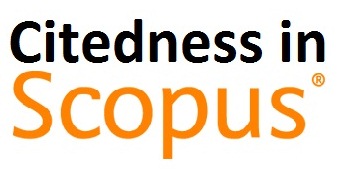Journal History
Founding Vision (2020)
Nabawi: Journal of Hadith Studies was founded in 2020 as a result of an academic workshop led by Dr. Abdul Qodir Riyadi, who emphasized the importance of fostering a strong academic and publication culture within Ma’had Aly Hasyim Asy‘ari (MAHA) Tebuireng.
From Mandate to Movement
Under the guidance of Dr. KH. Nur Hannan, then Director (Mudir) of Ma’had Aly, the mandate was entrusted to Dr. H. Mohamad Anang Firdaus, who was serving as the Head of LP2M at the time.
He translated the idea into action by forming a small pioneering team, supported by Maulanida, a library staff member who built the journal website, and Abdillah Afabih, a newly assigned LP2M staff who manage the journal’s business process .
Institutional Backing and Collective Spirit
Institutional support came from the Hasyim Asy‘ari Foundation (Pesantren Tebuireng), which from the very beginning provided funding, facilities, and policy backing.
This affirmed that Nabawi was not born as a personal project, but as a collective commitment to uphold an academic tradition within the pesantren & Ma'had Aly.
Mentorship and Early Inspiration
Following Dr. Nur Hannan’s direction, the team was advised to learn from his student, Dr. Habibi Al Amin, a journal manager and lecturer at the Postgraduate Program of UNHASY.
Under his mentorship, the team attended a journal workshop in Madiun, where they met the early editors of Studia Islamica—Indonesia’s first Islamic Studies journal indexed by Scopus.
From that encounter came a saying that became the team’s inner motto:
“If you want to manage a journal, you must be a little crazy — only those who are crazy enough can truly manage a journal.”
Scholarly Guidance and Leadership Continuity
To deepen its scientific rigor, the team also learned from Dr. Alfatih Suryadilaga, a hadith scholar and experienced journal editor from UIN Sunan Kalijaga Yogyakarta, who later became the first Editor-in-Chief of Nabawi.
After his passing, the leadership of the journal returned to Dr. Anang, who continued to manage it in the spirit of khidmah (scholarly service) as taught by his mentors.
Meaning Behind the Name Nabawi
The name Nabawi was chosen in consultation with Dr. Habibi Al Amin, carrying the intention that managing this journal is part of continuing the legacy of the scholars of hadith not just for money, academic rank, or accreditation, but as an act of devotion to knowledge and to the Prophet Muhammad May God bless him and grant him peace.
Expanding the Editorial Team
As Ma’had Aly grew into a higher education institution, its academic management became more complex.
H.M. Rizki Syahrul Ramadhan was appointed to assist in LP2M administration and later joined the journal team as Section Editor 2, strengthening coordination and workflow within the Open Journal Systems (OJS) platform.
He specialized in proofreading — a crucial stage ensuring linguistic and stylistic quality — continuing the careful work previously handled by Ananda Prayogi.
Mahasantri as Creative Collaborators
Throughout its journey, Nabawi has been deeply supported by talented mahasantri (student researchers) who contribute as creative collaborators.
In design and layout: M. Falich Haidar Al Habsyi and Daffa Futurrahman brought precision and artistic care.
In language editing and content refinement: Muhammad Alamuddin, Iqbal Nursyahbani, Indah Kurnia Azizah, Alfi Barokah, Rizky Amaliah, Ahmad Mutawakkil, Asti Maharani, and Muhammad Heri S. Alfatihulmukromin ensured that every article met linguistic and academic standards.
Their involvement represents cadre development — mentoring young santri to merge traditional learning discipline with modern academic research culture.
Advisory and Editorial Boards
In the editorial field, Nabawi is supported by distinguished scholars and researchers from national and international institutions.
Advisory Board:
Prof. Nadirsyah Hosen (Monash University, Australia),
Prof. Muhammad Irfan Helmy (IAIN Salatiga),
Dr. Muhammad Roy Purwanto (Universitas Islam Indonesia, Yogyakarta).
Editorial Board:
Dr. Muhammad Misbah (IAIN Kudus),
Dr. Muhammad Masruri (Universiti Tun Hussein Onn Malaysia),
Dr. Mahmood Kooria (Ashoka University, India),
Dr. Andi Rahman (UIN Syarif Hidayatullah Jakarta),
Dr. Soufin (Institut PTIQ Jakarta),
Prof. Damanhuri (UIN Sunan Ampel Surabaya),
Prof. Said Agil Husin al-Munawwar (UIN Syarif Hidayatullah Jakarta),
and Dr. Habibi Al Amin (Universitas Hasyim Asy‘ari Jombang).
Network of Reviewers
Nabawi also stands on a strong network of credible reviewers, both national and international.
Early contributors included Dr. Khamim (IAIN Kediri), Dr. Amrulloh (Universitas Pesantren Tinggi Darul Ulum Jombang), Ust. Abdul Karim Amrulloh (Ma’had Aly Hasyim Asy‘ari Tebuireng), and Dr. Lilly Suzana Hj. Shamsu (Universiti Islam Sultan Sharif Ali, Brunei Darussalam).
As the journal’s reputation grew, new reviewers joined from across the world — among them Dr. Ahmad ‘Ubaydi Hasbillah, Dr. Fahruddin Ali Sabri, Dr. Ali Sabri, Prof. Umi Sumbulah, Prof. Tutik Hamidah, Dr. Kusroni, Dr. Rosmalizawati Abd. Rashid, Mohammad Romadhoni, and Dr. Hamza Zergui.
Symbol of Pesantren’s Academic Legacy
As the first academic journal established by Ma’had Aly Hasyim Asy‘ari Tebuireng, Nabawi stands as a symbol of the pesantren’s academic succession in the realm of scholarly publication.
With its focus on Hadith Studies and Fiqh al-Hadith, it positions itself as a scholarly platform rooted in turāth (classical tradition) while engaging in global academic discourse.
Upholding the Classical Legacy
Every article published in Nabawi is required to reference classical sources more substantially than modern secondary references — reflecting both respect for the legacy of past scholars and responsibility to enhance it through contemporary academic rigor.
Recognition and Continuing Mission
Now, having been indexed in DOAJ and accredited SINTA 2 within just five years, Nabawi: Journal of Hadith Studies stands as living proof that a reputable academic journal can indeed emerge from the pesantren and Ma'had Aly — built with devotion, discipline, and a love for the Prophet ﷺ that transcends time and boundaries.






















